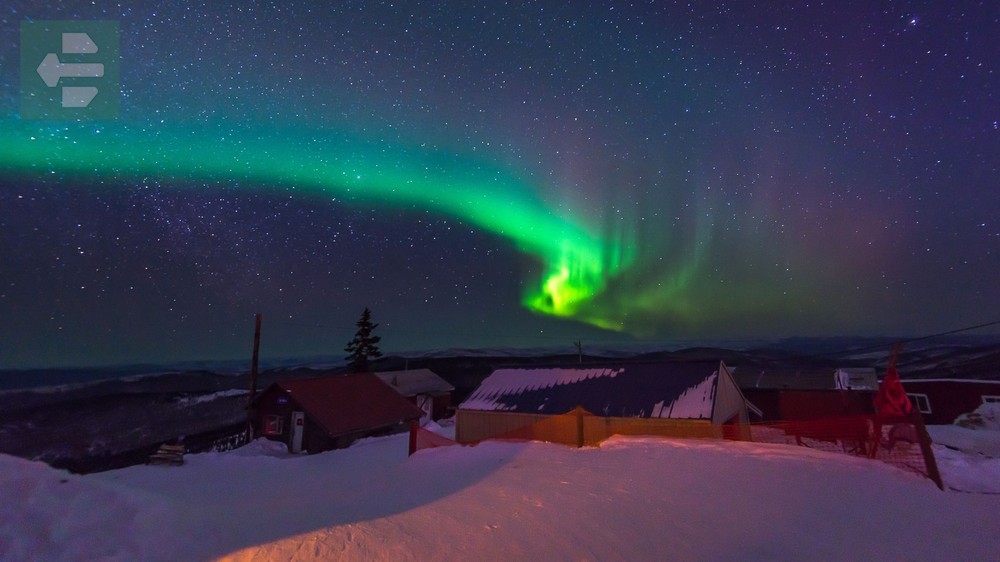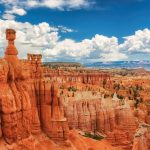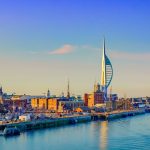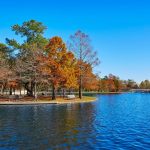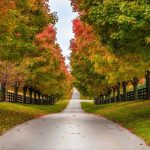Alaska offers some of the world's most spectacular aurora viewing opportunities, from the accessible city lights of Fairbanks to the remote wilderness of Utqiagvik. Prime locations include Chena Hot Springs Resort, Denali National Park, Coldfoot, and Talkeetna, each providing unique vantage points for this natural phenomenon.
Keep reading as we uncover the best places to see northern lights in Alaska that will turn your aurora hunting dreams into unforgettable memories.
List of Contents
- 1. Fairbanks: The Aurora Capital
- 2. Chena Hot Springs Resort: Warmth Under the Aurora
- 3. Coldfoot and Wiseman: Arctic Circle Aurora
- 4. Denali National Park: Six Million Acres of Aurora Canvas
- 5. Talkeetna: Small Town, Big Sky
- 6. Anchorage: Urban Aurora Access
- 7. Prudhoe Bay/Deadhorse: Edge of the Continent Aurora
- 8. Utqiagvik (Barrow): Polar Night Aurora
- Your Aurora Adventure Awaits
1. Fairbanks: The Aurora Capital
Fairbanks sits directly beneath the aurora oval, making it Alaska's most reliable northern lights destination. The city experiences over 200 aurora nights annually, with clear skies and minimal light pollution just outside town.

Drive 20 minutes north to Cleary Summit for unobstructed views. Local aurora photographers gather here nightly during peak season, sharing hot coffee and stories while waiting for the sky to dance.
The university's Geophysical Institute provides real-time aurora forecasts. Check their activity levels before heading out—anything above KP-3 promises a good show.
Quick Facts:
- Peak Season: September-March
- Getting There: Fairbanks International Airport, then drive 20 mins to viewing areas
- Entrance Fee: Free (public viewpoints)
- Suggested Stay: 3-4 nights
- Key Spots: Cleary Summit, Murphy Dome, Chena Lakes Recreation Area
2. Chena Hot Springs Resort: Warmth Under the Aurora
Nothing compares to soaking in 106°F natural hot springs while aurora borealis swirls overhead. Chena Hot Springs Resort offers this magical combination 60 miles northeast of Fairbanks.
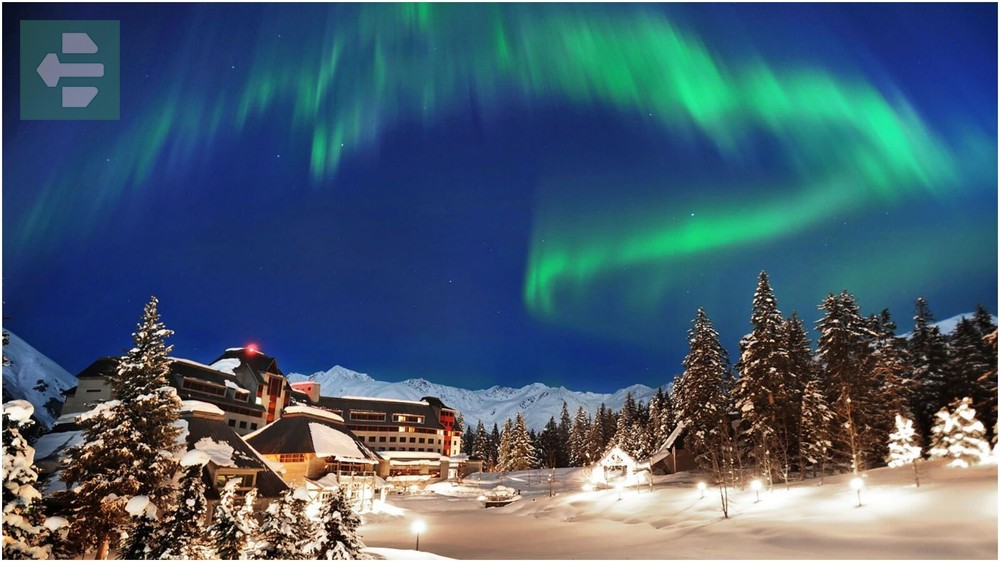
The resort's geothermal pools stay open year-round, providing warmth during sub-zero nights when aurora activity peaks. Steam rises from the water as green curtains dance across star-filled skies—a contrast that feels almost surreal.
Book the Aurora Viewing Package for heated outdoor seating areas and wake-up calls when activity increases. The resort eliminates guesswork from aurora hunting.
Quick Facts:
- Peak Season: Late August-April
- Getting There: 60-mile drive from Fairbanks on Chena Hot Springs Road
- Entrance Fee: Day pass from $35, overnight packages available
- Suggested Stay: 2-3 nights
- Key Spots: Outdoor hot springs, Aurora Viewing Deck, Ice Museum
3. Coldfoot and Wiseman: Arctic Circle Aurora
Coldfoot sits at mile 175 of the Dalton Highway, just north of the Arctic Circle. This remote truck stop becomes aurora central during winter months, offering some of Alaska's darkest skies.

The small population of Wiseman, five miles north, creates virtually no light pollution. Stand on frozen ground where temperatures drop below -40°F, and watch aurora displays that stretch from horizon to horizon.
Stock up on supplies in Coldfoot—the next services are 240 miles north. The isolation here amplifies every aurora moment.
Quick Facts:
- Peak Season: September-April
- Getting There: 175-mile drive north on Dalton Highway from Fairbanks
- Entrance Fee: Free (public land)
- Suggested Stay: 1-2 nights
- Key Spots: Coldfoot Camp, Wiseman village, Arctic Circle sign
4. Denali National Park: Six Million Acres of Aurora Canvas
Denali's vast wilderness provides an aurora backdrop unlike anywhere else on Earth. The park's 92-mile road offers numerous pullouts where mountains frame the dancing lights above.

Winter access requires snowshoes or skis, but the effort rewards you with complete solitude. I've stood alone at Wonder Lake, watching aurora reflections ripple across frozen water while Denali's peak loomed in darkness.
The park's elevation and northern latitude create ideal viewing conditions. Clear nights here offer aurora displays that seem close enough to touch.
Quick Facts:
- Peak Season: Late August-April (winter access limited)
- Getting There: 238 miles south of Fairbanks via Parks Highway
- Entrance Fee: $15 per person (7 days)
- Suggested Stay: 2-3 nights
- Key Spots: Wonder Lake, Savage River, Park Road Mile 15
5. Talkeetna: Small Town, Big Sky
Talkeetna combines small-town charm with excellent aurora viewing opportunities. This historic community of 900 residents sits at the confluence of three rivers, creating wide-open skies perfect for photography.

Walk five minutes from Main Street to find dark viewing spots along the riverbank. Local pilots often share aurora forecasts—they need clear skies for Denali flightseeing tours.
The town's northern latitude and minimal development create ideal conditions. Winter nights here stretch nearly 20 hours, maximizing your aurora window.
Quick Facts:
- Peak Season: September-March
- Getting There: 114 miles north of Anchorage via Parks Highway
- Entrance Fee: Free (public areas)
- Suggested Stay: 2-3 nights
- Key Spots: Talkeetna River, Susitna River confluence, downtown outskirts
6. Anchorage: Urban Aurora Access
Alaska's largest city offers surprisingly good aurora viewing for urban aurora hunters. Drive 30 minutes in any direction to escape city lights and find excellent viewing conditions.

Glen Alps Trailhead provides elevated views over the city bowl. On clear nights, aurora displays reflect off Cook Inlet while the Chugach Mountains create a dramatic foreground.
Anchorage's infrastructure makes it perfect for first-time aurora hunters. Hotels, restaurants, and rental cars are readily available, reducing the logistics of remote locations.
Quick Facts:
- Peak Season: September-March
- Getting There: Ted Stevens International Airport
- Entrance Fee: Free (public viewpoints)
- Suggested Stay: 3-4 nights (base for day trips)
- Key Spots: Glen Alps, Kincaid Park, Point Woronzof
7. Prudhoe Bay/Deadhorse: Edge of the Continent Aurora
Prudhoe Bay sits at America's northernmost point, where the aurora oval passes directly overhead. This industrial outpost on the Arctic Ocean offers some of Alaska's most intense displays.

The 24-hour winter darkness from November through January creates perfect viewing conditions. Stand where land meets frozen sea and watch aurora dance above Arctic pack ice.
Access requires advance planning—most visitors fly in or drive the challenging Dalton Highway. The isolation amplifies every aurora experience here.
Quick Facts:
- Peak Season: September-April (24-hour darkness Nov-Jan)
- Getting There: Fly from Fairbanks or 500-mile Dalton Highway drive
- Entrance Fee: Free (public areas, some restrictions)
- Suggested Stay: 2-3 nights
- Key Spots: Arctic Ocean overlook, Deadhorse Camp vicinity
8. Utqiagvik (Barrow): Polar Night Aurora
Utqiagvik sits 340 miles north of the Arctic Circle, experiencing 65 days of polar night from November to January. This creates unmatched aurora viewing opportunities in America's northernmost community.

The town's Inupiat heritage adds cultural depth to your aurora experience. Local guides share traditional stories about the northern lights while you wait for displays to begin.
January offers the darkest skies and most active aurora displays. The combination of polar night and peak aurora season creates magical viewing conditions found nowhere else in America.
Quick Facts:
- Peak Season: November-February (polar night)
- Getting There: Alaska Airlines from Anchorage (only access)
- Entrance Fee: Free (public areas)
- Suggested Stay: 3-4 nights
- Key Spots: Arctic Ocean shore, town outskirts, traditional viewing areas
Your Aurora Adventure Awaits
Alaska's best places to see northern lights offer experiences that will forever change how you view the night sky. From soaking in hot springs under dancing green curtains to standing alone on Arctic ice beneath nature's greatest light show, these destinations promise memories that last lifetimes.
The aurora calls to something deep within us—that ancient human need to witness wonder. Pack your warmest gear, charge your cameras, and prepare for nights when the sky becomes alive.
Your northern lights adventure begins the moment you decide to answer Alaska's luminous invitation.
